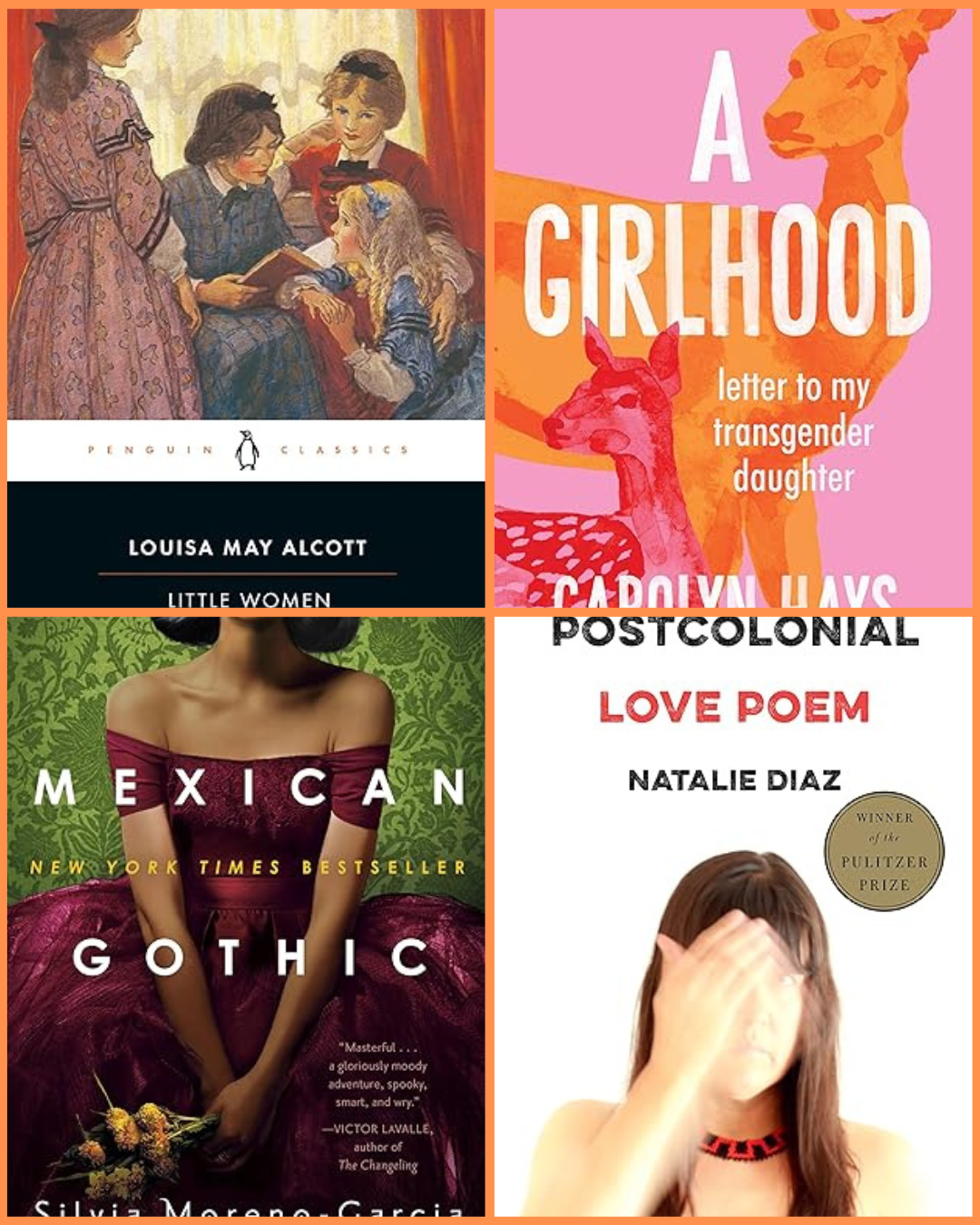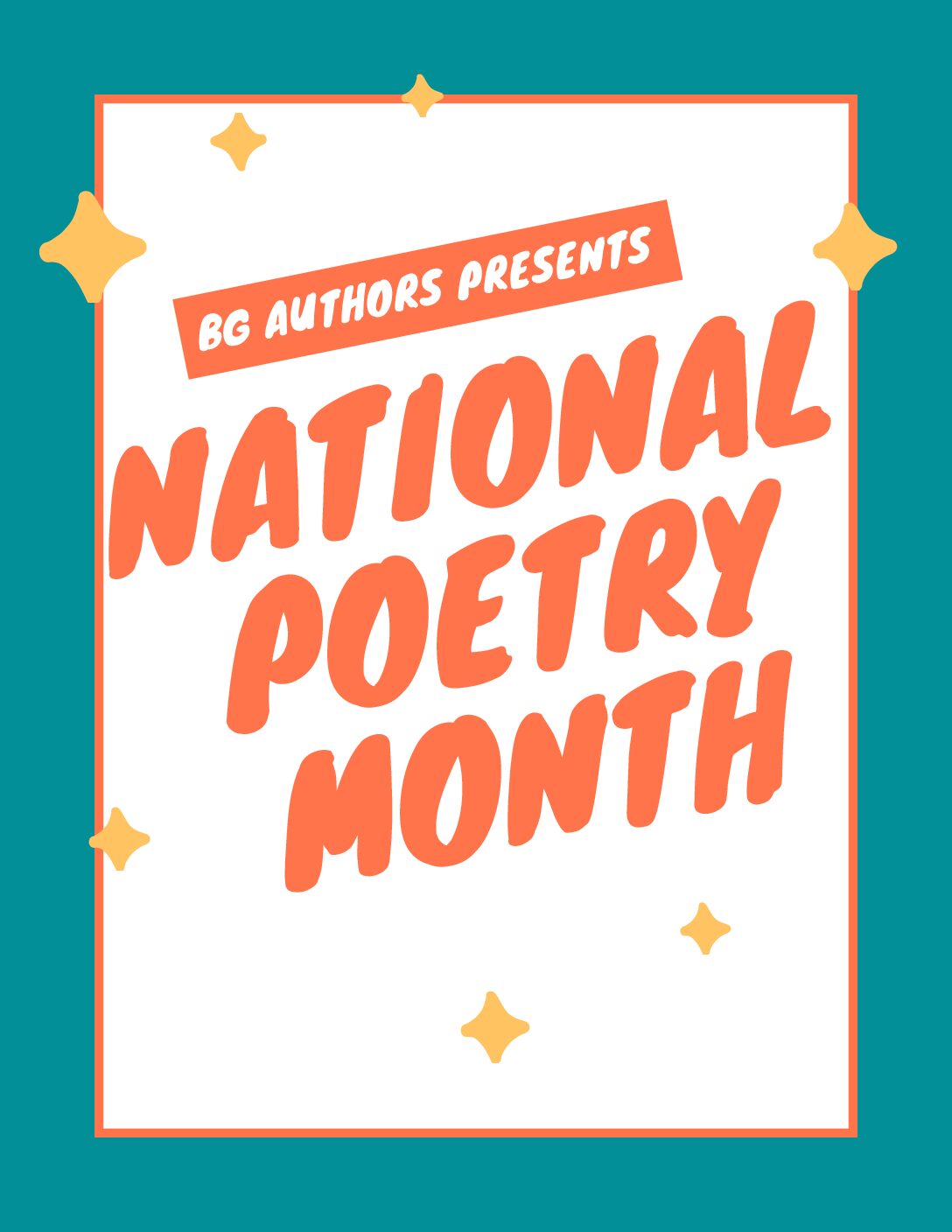March is a time to celebrate Women’s History Month – and what better way than to dive into literature!
Here are four recommendations for Women’s History Month. These books offer a variety of literature forms, all written by women with a strong woman as the protagonist or speaker.
Little Women (1868) – Louisa May Alcott
Looking to explore the classics? This novel defines womanhood in the late 1800s, but the messages can be translated into modern day.
We follow four sisters on a journey to find themselves, who they are in the margins, and who they want to be. The sisters clash with each other, love interests, and career goals; but, at the end of the day, they have each other and themselves. My favorite has to be Amy March. She is faced with challenges of loving a boy who did not originally have eyes for her. In addition, she has her eyes set on a financially supportive future, even by the means of marrying rich. She has an ambition in the arts, such as poetry, but understands that she stands in the margins of patriarchy. All of these forces do not diminishes her, but rather, she faces such hardships head-on. The other sisters, Beth, Jo, and Meg may turn out to be your favorite as you journey through emotions with them.
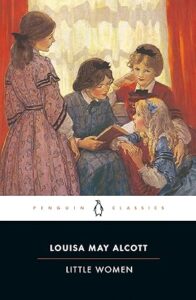
Letter to My Transgender Daughter (2022) – Carolyn Hays
With today’s fluctuating legalities on queer identities, this contemporary memoir explores a mother and transgender daughter relationship.
The protagonist is a mother on a mission to write these encouraging love letters to her daughter. We venture through a forced migration from Southern to Northern U.S. Otherwise, the Department of Children and Families were going to file suit under Republican judges for unlawful custody. In other words, the parents would lose custody for the child being transgender. The memoir serves as a call for action and empathy from a community of misunderstandings. Come listen to this mother, and I will assure that you will cry as I had done. The absolute and unconditional love of a mother to child is clear and astounding from beginning to end.
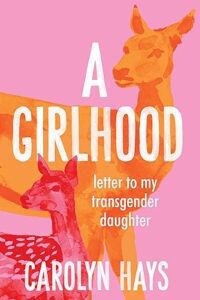
Mexican Gothic (2020) – Silvia Moreno-Garcia
Moreno-Garcia presents her protagonist as a strong, independent woman of color in the face of postcolonial structures still standing against Mexico.
This fictional novel has to be one of my favorites out of 2023. The protagonist, Noemi Taboada, sets out on a mission to investigate, even possibly save, her cousin, Catalina. A gothic, haunted house full of gloom (figurative and literal) is met with a family hierarchy of intergenerational racism, classism, and sexism. Noemi discovers the reality to Catalina’s “sickness” and fights against figures upholding the margins of postcolonialism. You will be simultaneously grossed out and empowered by Moreno-Garcia’s imagery and characterization.
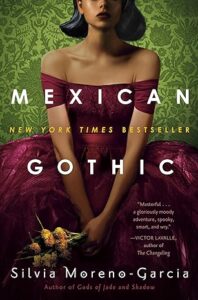
Postcolonial Love Poem (2020) – Natalie Diaz
An empowering and heartfelt collection of poetry is drawn out with water imagery and feminine figures.
In addition, these poems fight against erasure on indigenous identities. The intersectionality redefines love for what it is worth, how far one must travel in order to obtain love, and Diaz asks for readers to travel with her. Love for oneself and each other during the postcolonial scene in the US for indigenous communities and women is not clear-cut. This collection searches for love with family and relationships juxtaposed against trauma and violence. Through the search, motifs of land and water and intimacy is laid out for the reader to speculate definitions of love in a postcolonial time.

And don’t forget, celebrate the women in your lives this month! With these texts, you can educate yourself, resonate with, or even gift them to the women you know.
